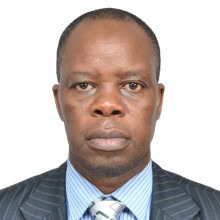
Parliamentarians Roundtable
Summary
The role of legislators in shaping urban development is crucial. Parliamentarians have significant influence in passing laws, overseeing the work of the government and contributing to policy decisions that directly impact cities and communities. They regularly debate and make decisions on local and national development challenges, including issues central to the twelfth session of the World Urban Forum such as housing, climate action, resilience and financing.
UN-Habitat will host a roundtable for parliamentarians in collaboration with the Inter-Parliamentary Union (IPU). The event will bring together parliamentarians and other stakeholders to discuss policy tools and explore opportunities for collaboration in advancing global commitments, particularly the New Urban Agenda (NUA) and the 2030 Agenda for Sustainable Development, with a focus on urban-related goals and indicators.
The IPU is the global organization of national parliaments. It works on facilitating parliamentary diplomacy and empowering parliaments and parliamentarians to promote peace, democracy and sustainable development. With only a few years left to implement the 2030 Agenda for Sustainable Development, mobilizing parliaments around the global development agenda is becoming increasingly urgent.
The IPU’s Standing Committee on Sustainable Development and its dedicated Working Group on Science and Technology are particularly relevant to the mission of getting parliaments to advance SDGs.
The Parliamentarians roundtable at WUF12 will engage in lively discussion about the crucial role of parliaments in creating a more resilient, fair and sustainable urban future. One of its main objectives is the identification of actionable legislative strategies and collaborations by parliamentarians to support and advance adequate housing and sustainable urban development. Participants will also be able to share good practices and promote collaboration to support the implementation of the NUA and urban SDGs, which amplifies the voice and support for adequate housing and sustainable urban development among parliamentarians at all levels.
Linkage with WUF12 theme
The objectives of the Parliamentarians roundtable align with the theme of the Forum as well as with three dialogues as the roundtable will promote the pivotal role of parliamentarians in driving legislative support for components that promote sustainable urban development.
The dialogue “Housing our future” addresses the provision of adequate housing. The roundtable will contribute to the focus of this dialogue by exploring legislative solutions to the housing crisis and rising inequalities within urban areas. Participants will discuss initiatives to renew social contracts through legislative frameworks that prioritise affordable housing, equitable access to land and sustainable urban planning to foster inclusive and resilient communities.
As cities grapple with the escalating impacts of climate change, Dialogue 2, “Cities and the climate crisis,” underscores the urgent need for localized adaptation, mitigation and resilience strategies. Parliamentarians play a crucial role in advancing legislative frameworks that support climate-resilient urban development. Discussion within the roundtable will focus on legislative mechanisms to incentivize sustainable infrastructure, promote energy efficiency and integrate nature-based solutions and climate considerations into urban planning regulatory processes.
Dialogue 3, “Stronger together,” highlights the significance of partnerships in bridging global goals with local realities. Parliamentarians participating in the roundtable will explore legislative strategies to strengthen partnerships across diverse urban actors, including grassroots organizations, civil society, the private sector and the built environment. Discussions will revolve around the establishment of legislative frameworks that facilitate multi-stakeholder collaboration, streamline decision-making processes, and promote participatory governance. By fostering legislative alliances and knowledge-sharing platforms, parliamentarians can enhance the effectiveness of urban partnerships and drive localized progress toward sustainable development goals.
Objectives
- Identify actionable ideas by parliamentarians on legislative support for advancing adequate housing and sustainable urban development at national, subnational and local levels.
- Engage in discussions on the theme of WUF12, exploring the nexus between local actions and sustainable urban development.
- Share and reflect on lessons learned from past legislative initiatives and urban development projects, with a focus on good practices and existing tools for effective engagement with parliamentarians.
Expected outcomes and impact
- Develop a detailed, actionable plan will be developed for a platform that will amplify the voice and support for urbanization among parliamentarians at all levels.
- Increase the involvement of legislators in urban development processes by creating an enabling environment for addressing urban challenges.
- Secure commitments from parliamentarians on legislative support, including policy formulation and increased funding for sustainable urban development.
- Facilitate the sharing of lessons learned and good practices from past legislative initiatives and urban development projects.
Guiding questions
- How can parliamentarians support sustainable urban development through legislative actions?
- What specific legislative initiatives have proven successful in addressing urban challenges such as housing, climate change, resilience and social inequality?
- How can parliamentarians foster stronger partnerships with local stakeholders and communities, civil society and private sector stakeholders to advance the urban agenda?
- How can UN-Habitat support parliamentarians in their efforts to enact and implement laws and policies for sustainable urban development?


 Streaming on UN WEB TV
Streaming on UN WEB TV